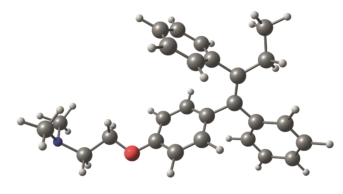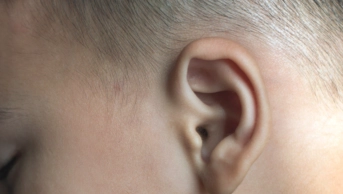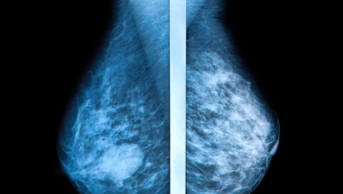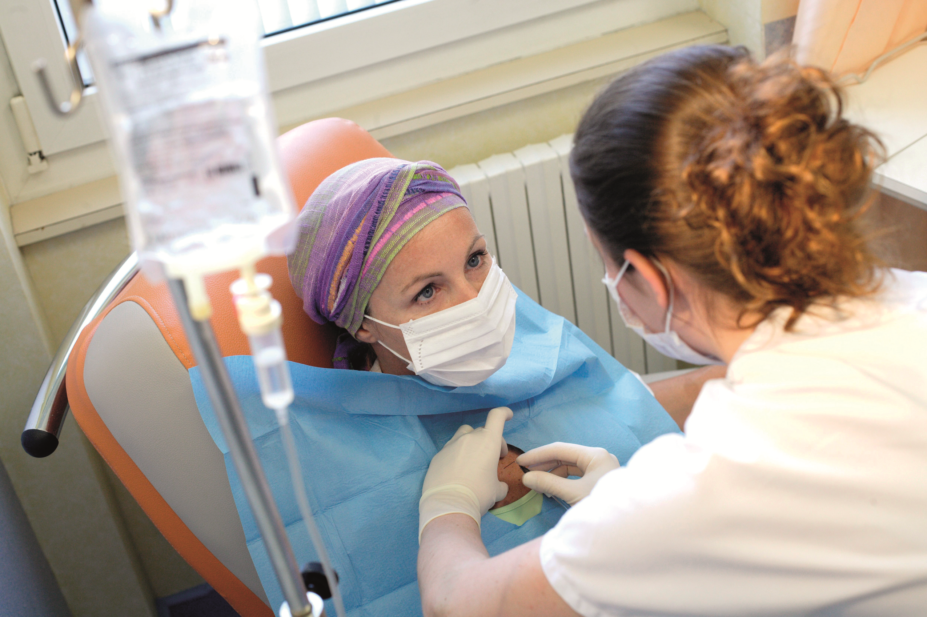
Burger / Phanie / Science Photo Library
Nearly half of women being treated for early-stage invasive breast cancer report suffering ‘severe’ or ‘very severe’ side effects from their drugs, according to research published in Cancer
[1]
(online, 24 January 2017), the official journal of the American Cancer Society. A third of women questioned ranked the side effects as ‘severe’, even though they had not received chemotherapy, the study shows.
The researchers questioned 1,945 women with early-stage invasive breast cancer living in Los Angeles County and Georgia in the United States. The response rate was 71%.
Some 45% of women reported at least one toxicity-related side effect that they ranked as either ‘severe’ or ‘very severe’; 9% made a special appointment at their cancer clinic to tackle the side effects; and 5% sought help from a hospital or emergency department, the results reveal.
The researchers say their findings have important clinical implications, adding: “The toxicity burden faced by patients may be greater than acknowledged by clinicians, and warrants routine assessment during and between clinic visits.”
When the researchers examined the data in more detail they found that undergoing chemotherapy alone was associated with reporting a higher toxicity severity (odds ratio [OR] 2.2; 95% confidence interval [CI] 2.0-2.5) as was receiving both chemotherapy and radiotherapy (OR 1.3; 95% CI 1.0-1.7).
The researchers say their finding of “differential toxicity patterns” may help clinicians when reviewing the risks and benefits of breast cancer treatment options, and that supportive care programmes for a wider range of patients, not just those undergoing chemotherapy, are needed.
“These novel data solicited directly from patients highlight opportunities to improve supportive care through targeted toxicity management and data-informed patient-provider communication,” they say.
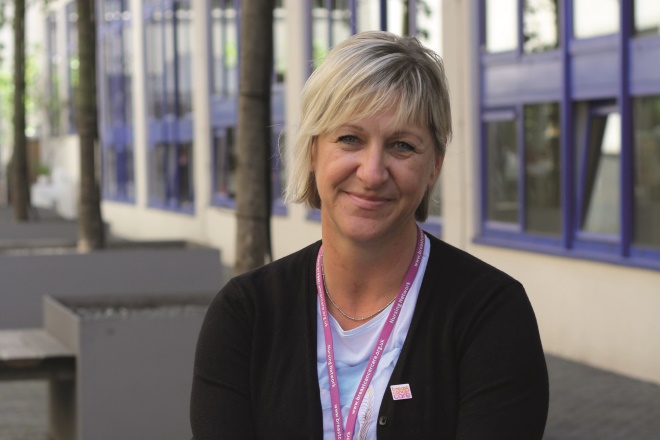
Source: Breast Cancer Care
Jane Murphy, clinial nurse specialist at Breast Cancer Care, says unexpected side effects can cause additional stress for women being treated for breast cancer
Jane Murphy, clinical nurse specialist at the UK patient charity Breast Cancer Care, welcomes the study. “We know many women experience gruelling side effects from breast cancer treatment, even after treatment has finished. These can severely affect quality of life, so it’s really good that research is addressing this.”
Murphy adds that while side effects such as hair loss and nausea caused by chemotherapy are well-known, unexpected side effects can cause additional stress for women. “Surgery, radiotherapy and hormonal treatment may also cause side effects like pain and fatigue, lymphoedema, or menopausal symptoms such as hot flushes.
“These can be hugely debilitating and may affect women at a time when they are trying to move forward.”

Source: Courtesy of Breast Cancer Now
Katherine Woods from UK charity Breast Cancer Now says that patients should be fully informed of the risks and benefits of breast cancer therapies
Katherine Woods, senior research communications manager at Breast Cancer Now, a UK charity that funds research into the disease, says: “These concerning findings once more highlight the need to find ways to help patients deal with the side effects of their treatment – not only to improve their quality of life but to ensure they can continue with treatments that could improve their chances of survival.”
All treatments for breast cancer carry risks of side effects, she adds, with some patients being more affected by certain side effects than others. Severe side effects often occur as many breast cancer treatments are unable to target a patients’ cancer cells alone, meaning that healthy cells are damaged too.
“It is essential that patients are fully informed of the risks and benefits of their therapies, and that they receive the support they need before, during and after their treatment,” she concludes.
References
[1] Friese CR, Harrison JM, Janz NK et al. Treatment-associated toxicities reported by patients with early-stage invasive breast cancer. Cancer. 2017. doi: 10.1002/cncr.30547
